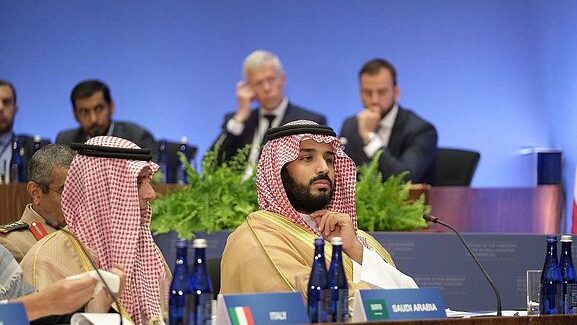Saudi Arabia’s Engagement with Taliban-Led Afghanistan: A Strategic Shift
In December 2024, Saudi Arabia announced the reopening of its embassy in Kabul, Afghanistan, marking a significant policy shift after a three-year closure following the Taliban’s return to power in 2021. This move indicates Riyadh’s intent to engage with the Taliban-led government, aligning with its broader Vision 2030 reform agenda.
Historical Context
Saudi Arabia and Afghanistan share a complex history. During the Soviet-Afghan war in the 1980s, Saudi Arabia provided substantial support to the Afghan mujahideen. In 1996, following the Taliban’s initial rise to power, Saudi Arabia was among the few countries to officially recognize their government. However, relations soured in 1998 when the Taliban refused to extradite Osama bin Laden, leading Saudi Arabia to sever diplomatic ties. The 9/11 attacks further strained relations, as the Kingdom distanced itself from the Taliban to avoid association with terrorism.
Reengagement Efforts
Despite past tensions, Saudi Arabia has intermittently sought to reengage with Afghan leadership. In 2008, it facilitated peace talks between the Taliban and the Afghan government in Mecca, aiming to negotiate a ceasefire and integrate the Taliban into the political framework. Although these discussions did not yield a lasting agreement, they signaled Riyadh’s willingness to act as a mediator in Afghan affairs.
Vision 2030 and Regional Stability
Under Crown Prince Mohammed bin Salman, Saudi Arabia’s Vision 2030 aims to diversify the economy beyond oil dependence and modernize societal structures. A stable regional environment is crucial for attracting foreign investment and ensuring the success of mega-projects like NEOM and the Mukaab. Engaging with neighboring countries, including Afghanistan, is part of this strategy to foster regional stability.
Strategic Interests in Afghanistan
Afghanistan’s geopolitical position makes it a focal point in regional dynamics. By reopening its embassy in Kabul, Saudi Arabia seeks to counterbalance influences from regional players such as Iran and Qatar, who have also shown interest in Afghan affairs. This engagement allows Riyadh to assert its influence and promote stability in a country that has historically been a nexus of regional conflicts.
Economic and Humanitarian Considerations
The resumption of diplomatic ties facilitates not only political dialogue but also economic and humanitarian cooperation. Saudi Arabia has a history of providing aid to Afghanistan through initiatives like the King Salman Humanitarian Aid and Relief Center. Strengthened relations could lead to increased development projects, infrastructure investments, and support for education and healthcare in Afghanistan, aligning with the humanitarian aspects of Vision 2030.
Challenges and Future Outlook
While the reopening of the embassy is a positive step, several challenges persist. The Taliban’s international recognition remains limited due to concerns over human rights and inclusive governance. Saudi Arabia must navigate these issues carefully to maintain its global standing while engaging with the Afghan government. Additionally, ensuring that Afghanistan does not become a haven for extremist groups is paramount for regional security.
In conclusion, Saudi Arabia’s decision to resume diplomatic operations in Kabul reflects a strategic effort to align its regional policies with the ambitious goals of Vision 2030. By fostering relations with Taliban-led Afghanistan, Riyadh aims to enhance regional stability, counter rival influences, and open avenues for economic and humanitarian collaboration. The success of this engagement will depend on navigating complex political landscapes and ensuring that mutual interests are effectively addressed.
Do follow gulf magazine on Instagram
for more information click here



